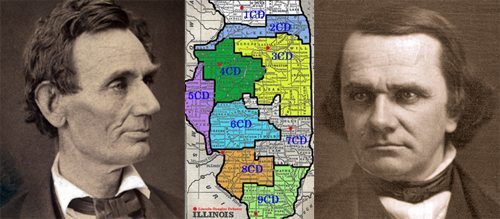
Despite the Supreme Court’s decision in Roe v. Wade in 1973, anti-abortion groups have stopped at nothing–not even the law–to enact high legal hurdles that inhibit the right of every women to control their reproductive lives and health choices. In one of the presidential debates in 2004, George W. Bush even invoked Dred Scott as a guiding principle for his judicial choices. Abortion equals slavery. Welcome to the Abortion Freeport Doctrine.
Three states have taken this tactic to new extremes. Texas passed an onerous law that will result in the closing of more than half of the remaining clinics in the state. Arizona passed a law, now under judicial review, that would restrict medication abortions. And Mississippi Governor Phil Bryant said today that he will sign a law that will prohibit abortions after 20 weeks of pregnancy, and with no exception for rape or incest This is all on top of restrictive laws that have been passed, and have passed judicial muster, over the 41 years that Roe has been the law of the land. The Supreme Court is now weighing whether the Affordable Care Act can require all employers to cover contraception for all of its employees, because those companies consider some contraception to mimic abortions.
This is an emotional issue and the debate over abortion does not yield any middle ground. But we can find a way to make abortions less likely, provide contraception and sex education, and allow women and their doctors to make decisions that are in the best interests of the patient. That’s called freedom of choice and it’s something I hear a great deal about from those on the political right who want the government out of our lives, except in the bedroom. Or kitchen. Or back seat. Or…you get the point.
My solace comes from the belief that the conservative tide has crested and that we’re seeing the worst of the restrictions now. Many will stay in the most conservative states, but the idea that a women’s body is her own is pretty much a settled social idea that the court overturns at the country’s peril. It’s worth remembering that the Freeport Doctrine went nowhere. It’s also worth remembering that it took another hundred years for African-Americans to gain their full legal rights. I hope we’re not still debating the choice issue 60 years from now.
Register your comments at www.facebook.com/WhereDemocracyLives and on Twitter @rigrundfest
Share this content:







